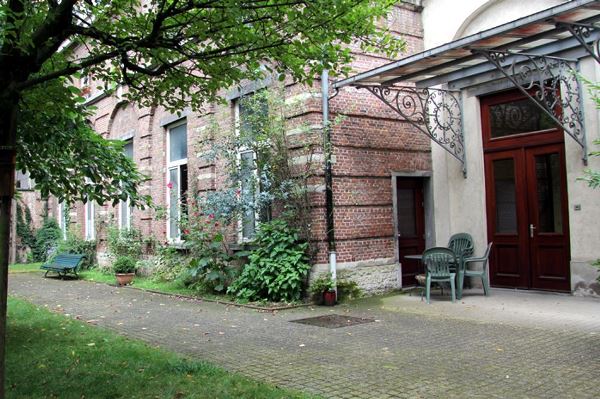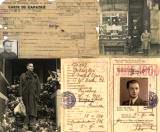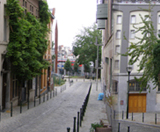New videos (only partially in English)
Summary, abstract and full texts No. 101
Dossier: Quelle pédagogie, pour quelle(s) mémoire(s) ?
Coordinated by Philippe Mesnard and Yannis Thanassekos
Philippe Mesnard and Yannis Thanassekos: Editorial(pdf in French)(pdf in Dutch)
Sophie Ernst: Transmission de masse et pédagogie de la Shoah : nouveaux enjeux (pdf)
- Now that the memory of the Shoah has become central to our culture, the question of the policy educational institutions should adopt to teach younger generations about it arises. However, discussion on education is obsessed by quite different issues, notably social justice or structural reforms. This is why remembrance associations and memorial museums have played a pioneering role in Shoah education rather than schools, which must nevertheless now assume their responsibilities independently. In particular, they must re-evaluate the teaching techniques which have been formed without debate, and which can be questioned by going back to the turning point in the 1990’s when mass transmission began, with all its inherent risks. Certain methods have established themselves as the "right ways", such as testimony in class, visits to Auschwitz and identification with the young victims. What presuppositions underlie these methods, and what effects do they really have? It is time to start re-considering whether the methods achieve the goals sought, and to develop new forms of training teachers which involve them more directly and include discussion of the basic problems.
- This article reports on an investigation among Swiss teachers into the conditions for transmitting the history and remembrance of the Shoah, starting from questions on methods of teaching history and social representations. Based on conversational interviews, it shows that teachers set themselves high standards and are ready to make comparisons with other genocides, but without always linking their practices to research findings.
- In July 2008 the sixth international conference on the teaching of the Shoah was held at Yad Vashem (Israel). English-speakers, Spanish-speakers and Eastern European countries were strongly represented. These last countries view the teaching of the Shoah as a key element of democratisation. During this vast event a double tendency emerged: on the one hand the assertion of a political statement re-affirming the link between Israel and perpetuating remembrance of the Shoah; on the other, a strong universalist orientation.
Jean-François Forges: La mise en place de l'enseignement de la Shoah en Espagne, à Madrid (pdf)
- Since the Spanish government accepted the need for teaching on the Shoah in 2006, many ceremonies and conferences, involving historians, lawyers and former deportees, sometimes with the King himself present, have sought to restore Spanish Jews to their place in history. The introduction of the Shoah in the school curriculum at the historical and moral level has been accompanied by intense theoretical reflection, and the first didactic and historical visits to the sites of Shoah remembrance in Europe have been organised.
Jesus Alonso Carballès: Le bombardement de Guernica dans les manuels d'histoire de l'enseignement secondaire en France (1946-2006)
- School textbooks are indispensable tools for transmitting history and remembrance to every generation of young pupils. This article examines the place given to the bombing of Guernica in French secondary education by analysing 27 textbooks published from the end of the Second World War to 2006.
Frediano Sessi: Éléments pour une réflexion sur la présence de la Shoah dans les écoles italiennes
- In the 1980’s very few Italian universities offered courses on the extermination of the Jews, nazism and fascism in their contemporary history programmes. Not until 1996 was the history of the twentieth century introduced in Italian school curricula. But in 2000 a "day of remembrance" was established by law, and since then there has been a disproportionate growth in initiatives, activities and remembrance projects.
- This text examines how Belgian contemporary documentary approaches Shoah’s pedagogy. What has recently changed is in the way didactic films communicate the memory of the war to young people. Focusing on a recent documentary, Modus Operandi, which saw its debut in March 2008, this paper analyses the changes that have taken place, regarding both the historical approach to the event and the cinematographic modes of representation of the history of the genocide. First, the film assumes a national perspective on the event and thus concentrates on the process that led to the extermination rather than on the memory of the camp’s survivors. And, aside from merely communicating historical knowledge, the film leads the viewer to reflect on the process of the writing of history. Finally, the film moves away from what is sometimes referred to as "shock therapy", i.e. the exposure of young people to horrific images, since that filmic strategy is considered as harmful to young people.
- In France and elsewhere, the way in which the Shoah is taught today has brought to light weaknesses in the way that educational institutions carry out their mission of transmission. Progress in academic knowledge, which is now linked to approaching the Shoah in terms of definition, classification and comparison, supports a certain number of unfamiliar ideas.
- The transmission of the remembrance of "Auschwitz" is not the transmission of something that is already given. It presupposes the elaboration of the sense and the signification of what should be transmitted. Rare are the subjects of history that show such a gap between, on one hand, the demands of a comprehension that does not sacrifice to complexity (the duty of history) and, on the other hand, the constraints and limits inherent in all pedagogy (the duty of remembrance). How to surmount the difficulties without using dangerous simplifications or mystifications? From the educative point of view, the experience of Auschwitz has only real sense if it gives access to a critique of the present without concessions.
Other subjects
Elisabetta Ruffini & Sandro Scarrocchia: Auschwitz, Bloc 21. L’histoire d'un mémorial à défendre
- Unlike the other national pavilions on the site of Auschwitz I, the pavilion which, after long years of gestation, Italy established in 1980, is based on a work of art, as it had been decided to avoid a documentary-type approach. Some of the great names of twentieth-century Italian culture contributed to the work: Lodovico Belgiojoso and the BBPR studio, Nelo Risi and Mario Samonà, Primo Levi and Luigi Nono. But this pavilion, long neglected, now risks being made to resemble the other national pavilions. This would destroy its artistic dimension, replacing it with a memorial arrangement based on documentation, not the creative imagination.
- Acknowledging that genocide is not yet a thing of the past, and with reference to the Holocaust and the 1994 Rwandan genocide, this research examines the extent to which sociological explanations of acts of genocide have a common basis. To this end it compares the assertions of "intentionalists" and "functionalists". Despite assertions that there is no common basis which might indicate the possibility of acts of genocide, this study suggests that recurrent elements are present in the various explanations of the Holocaust and the Rwandan genocide. As the study examines only two genocides, further research into the validity of this finding will be needed before these conclusions can be generalised.
- In May 1941 a strike broke out in the Nord-Pas-de-Calais mining basin, a "zone attached" to the Militärbefehlshaber in Belgien und Nordfrankreich, depriving France and the occupant of important economic resources. The social movement, supported by the clandestine Communist Party triggered brutal repression. The Vichy authorities’ inability to restore order led to the intervention of the Oberfeldkommandantur 670 of Lille, which undertook repressive action based on martial law and the internment of the agitators in Belgium. The breach of the German-Soviet pact in June 1941 contributed to an ideological shift in the perception of the agitators and ended in the formation of a convoy of deportees to Sachsenhausen. This placed the North French miners at the heart of the mutations of the camp system. Even after they were deported inside the Reich the process of repression continued, casting light on the practices of the German authorities and the issues arising between them.
Some of our projects
Contact
Auschwitz Foundation – Remembrance of Auschwitz
Rue aux Laines 17 box 50 – B-1000 Brussels +32 (0)2 512 79 98
+32 (0)2 512 79 98 info@auschwitz.be
info@auschwitz.be
BCE/KBO Auschwitz Foundation: 0876787354
BCE/KBO Remembrance of Auschwitz: 0420667323
Office open from Monday to Friday 9:30am to 4:30pm.
Visit only by appointment.![]()
![]()
![]()
![]()
Become a member
To become a member of Remembrance of Auschwitz ASBL, take part in its activities and support its actions, please contact us.
Membership costs €40.00, payable to account n° 310-0780517-44 (IBAN : BE55 3100 7805 1744 – BIC : BBRUBEBB)
Donations of more than €40.00 qualify for a tax exemption for Belgian tax-payers.










 The Auschwitz Foundation was founded in 1980 by Paul Halter, an Auschwitz survivor. Replacing the Amicale Belge des Ex-Prisonniers politiques d’Auschwitz-Birkenau Camps et Prisons de Silésie, the primary objective of the Auschwitz Foundation is to study the history and memory of the victims of the Holocaust and the Nazi terror in a sustainable and systematic way. The transmission of memory and the preservation of archives concerning these events complete this goal.
The Auschwitz Foundation was founded in 1980 by Paul Halter, an Auschwitz survivor. Replacing the Amicale Belge des Ex-Prisonniers politiques d’Auschwitz-Birkenau Camps et Prisons de Silésie, the primary objective of the Auschwitz Foundation is to study the history and memory of the victims of the Holocaust and the Nazi terror in a sustainable and systematic way. The transmission of memory and the preservation of archives concerning these events complete this goal.





